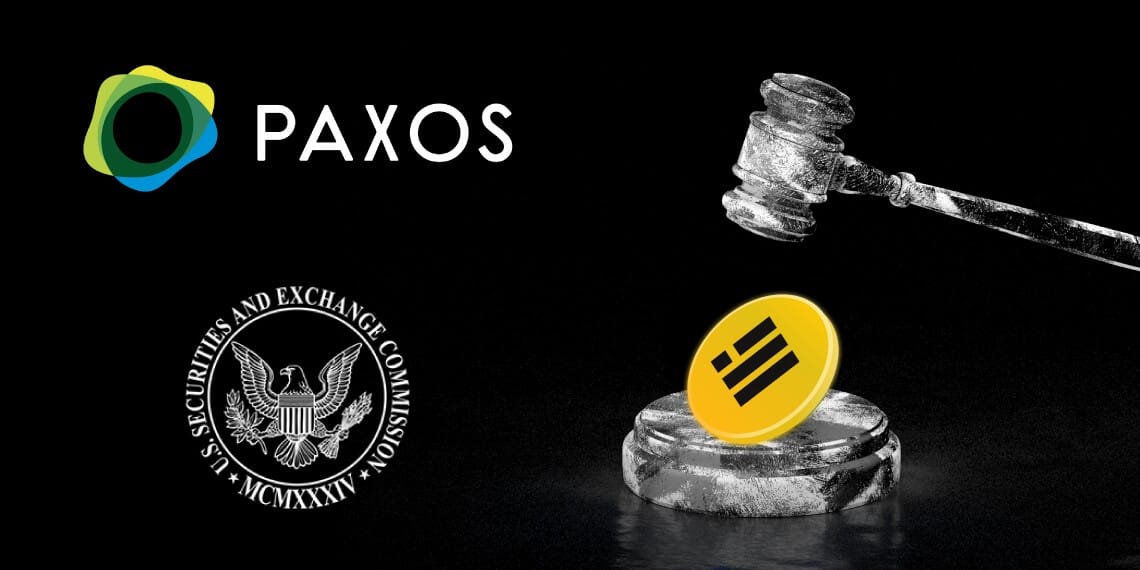2023 was a pivotal phase in crypto history and will be etched in memory for its rigorous tests of the sector’s fundamentals. These trials, often stemming from events from 2022, forced the industry into introspection and transformation.
Discussions around regulations in 2022 led to increased regulatory scrutiny in 2023—with the sector hit by several regulatory developments as governments grappled with defining their stance on cryptocurrencies.
Just across the room, catastrophic events like the infamous FTX crash and the biting crypto winter acted as a prelude to a salvo of bank runs, bankruptcies, mergers, and severe legal consequences for key industry figures like Sam Bankman-Fried and Changpeng Zhao.
Beyond the carnage, the industry has shown resilience and may be on the brink of even greater mass adoption. The total market capitalization of cryptocurrencies surpassed $1 trillion, indicating renewed investor confidence. Bitcoin is in an exciting resurgence, pushing $42,000 at press time.
2023 was indeed that year for crypto, and as we wrap it up, we’ve taken time to highlight notable events from each month and how they impacted the industry.
January: Introduction of Bitcoin Ordinals
In January, the Bitcoin Ordinals protocol marked its public debut, introducing a groundbreaking method for directly inscribing digital content onto the Bitcoin blockchain.
Originating from programmer Casey Rodarmor’s work in late 2022, the protocol drew inspiration from Satoshi Nakamoto’s early Bitcoin code concept of “atom.” Though Rodarmor inscribed the genesis Bitcoin Ordinals block—a pixelated skull image—on December 14, 2022, the protocol was launched for public access in January 2023.
The creation of Ordinals brought a fresh wave of innovation to Bitcoin, leading to the creation of BRC tokens and, more importantly, triggering the birth of Bitcoin NFTs, which has been hailed as a paradigm shift in the NFT landscape. Since January 2023, over 48 million Bitcoin Ordinals have been minted, with over 1 million turned into NFTs.
Notable Mention: Genesis’ Bankruptcy
Crypto lender Genesis filed for bankruptcy in January as it owed creditors at least $3.4 billion. This catalyzed a chain of events that rocked the industry during the year. The Chapter 11 case and many other related cases are underway in U.S. courts, with expectations for resolutions in 2024.
February: Paxos vs. the U.S. SEC

In February, Paxos got entangled in a legal dispute with the United States Securities and Exchange Commission (SEC) regarding its activities with the BUSD stablecoin.
On February 12, the SEC served the stablecoin issuer a Wells Notice, claiming that one of its products, the Binance USD stablecoin (BUSD), was an unregistered security.
Paxos was given 30 days to respond with a legal brief to contest potential charges. The following day, The New York State Department of Financial Services (NYDFS) ordered Paxos to stop minting new BUSD due to concerns about its oversight of the Binance relationship.
Despite Paxos asserting why BUSD shouldn’t be classified as a security and its preparedness to defend this stance if necessary, Paxos opted to sever ties with Binance and announced the discontinuation of BUSD issuance under the mounting regulatory pressure. However, the company committed to supporting BUSD until at least February 2024.
This clash marked the onset of a series of regulatory enforcement actions by the U.S. SEC against crypto companies operating within the country over claims of offering unregistered securities to U.S. residents.
March: Failures of Signature, SVB and Silvergate

The fallout from FTX’s crash in November 2022 and Genesis’ bankruptcy in January 2023 began manifesting in 2023 Q1. The failure of three crypto-friendly banks—Signature, Silicon Valley Bank (SVB) and Silvergate—all within a week sparked widespread panic in the financial industry.
Silvergate Bank declared bankruptcy after suffering significant liquidity problems due to the decline in cryptocurrency markets in 2022. The bank posted a loss of over $1 billion and an $8 billion run on deposits.
Silicon Valley Bank faced a similar fate, collapsing as depositors withdrew over $42 billion in one of the fastest bank runs in history. Signature Bank, a much bigger bank than Silvergate and SVB, was forcibly shut down by government authorities over concerns that it poses a systemic risk to the American economy. This intervention impacted major crypto companies such as Coinbase, Paxos, and the now-defunct Celsius.
Despite the government’s claims that its intervention was done to protect depositors, the impact of these bank failures on the traditional and crypto financial landscapes was profound, even to the point of causing instability in the stablecoin market.
April: MiCA and Europe’s Drive for Regulatory Control

Europe made a big move with its landmark crypto regulatory framework, Markets in Crypto-Assets (MiCA). This policy draft was the world’s first comprehensive regulatory framework for crypto assets. Its goal was to establish a consistent set of rules for cryptocurrency matters across all European countries.
On April 20, the European Union’s parliament ratified the regulation in a final vote, initiating the process of making it law and officially implementing it. While the regulations technically take effect 20 days after publication, the practical implementation of MiCA is set to commence on December 30, 2024.
MiCA’s introduction kickstarted a global race, prompting other countries to consider comprehensive regulations for cryptocurrencies and digital assets. According to PriceWaterhouseCoopers’ (PwC) 2023 Global Crypto Regulation Report, more than 40 countries have taken steps to advance crypto-focused regulations and legislation this year, signalling a potential surge in global cryptocurrency adoption.
May: Bhutan’s Investment in Crypto Mining
In a surprising move, Bhutan’s government announced an ambitious plan: a $500 million fund dedicated to crypto mining in the Himalayas. Druk Holding & Investments (DHI), the commercial wing of Bhutan’s government, collaborated with Bitdeer Technologies “to launch a carbon-free digital asset mining data center.” These data mining centres would engage in ‘green crypto mining’ using energy from the nation’s abundant hydropower sources.
The project was intended to demonstrate the government’s commitment to the global race for innovation.
June: The U.S. SEC’s Regulatory Wars Against Binance & Coinbase
The US Securities and Exchange Commission (SEC) ramped up its regulatory enforcement actions in June, filing major lawsuits against major cryptocurrency exchanges Coinbase and Binance. The regulator accused both exchanges of violating securities laws by classifying specific cryptocurrencies as securities for trading to varying degrees.
Binance and Coinbase both strongly disputed the regulator’s claims, claiming that the lawsuits were ill-conceived and lacked a valid basis for alleging rule violations.
These legal actions had a tangible impact on the cryptocurrency market due to the prominent industry players involved, causing a general decline in cryptocurrency prices and ultimately reflecting the market’s adverse response to the heightened regulatory scrutiny of major exchanges.

July: Ripple’s Partial Victory Against the U.S. SEC
Ripple started a trend of crypto firms scoring wins against the U.S. SEC in its crusade against crypto companies. The XRP issuer secured a partial victory against the regulator in a case regarding the status of XRP as a financial instrument that had been dragging on since December 2020.
The judge presiding over the case ruled that Ripple did breach federal securities laws by directly selling XRP to institutional investors. However, the ruling clarified that Ripple did not violate these laws when making XRP available to retail customers through automated sales to exchanges.
This distinction holds particular significance as the SEC has consistently maintained the position that, excluding Bitcoin, all cryptocurrencies should be considered securities.
While the lawsuit is still ongoing—a final resolution is expected in 2024—this partial victory was seen as a vindicating moment for crypto companies, particularly those based in the United States. Ripple CEO Brad Garlinghouse celebrated the outcome as a win for the broader crypto industry.
Notable Mention: WorldCoin Project Launch.
The Worldcoin project made a notable entry into the crypto scene with the launch of its blockchain-based universal identity product in July 2023. The project rapidly gained mainstream attention, mainly due to one of its co-founders, Sam Altman, a prominent figure in the artificial intelligence (AI) space.
The project, however, was met with mixed reactions. Several countries prohibited residents from scanning their irises with a device called the Orb, a prerequisite for the WorldID and Worldcoin tokens that the project promised users, over concerns about unethical data collection practices.
These concerns have become severe obstacles to the project’s aims to tackle income inequality and its ambition to become the global authority on digital identity.
August: Paypal’s Stablecoin Launch and Grayscale’s Victory Against US SEC
In a move that further solidifies the integration of cryptocurrencies into mainstream payment systems, financial payments giant PayPal surprised the industry with the launch of its stablecoin, PayPalUSD. The stablecoin product, according to the company, is a catalyst for its growth because it positions it to capitalize on the evolving crypto landscape, providing an enhanced payment solution for its customers.
Also, in August, a US court ruled that the SEC’s rejection of Grayscale’s application to list a Bitcoin exchange-traded fund (ETF) was erroneous. This decision marked a notable milestone in the public acceptance of Bitcoin ETFs, paving the way for increased institutional involvement in the cryptocurrency market.
September: Mark Cuban $900,000 in Suspected Phishing attack
In September, Mark Cuban, the owner of the Dallas Mavericks and a prominent crypto investor, reportedly lost nearly $900,000 in a suspected phishing attack targeting his MetaMask cryptocurrency wallet.
The incident came to light when crypto investigator WazzCrypto identified unusual transactions from a dormant wallet associated with Cuban. These funds, untouched for six months, were suddenly moved, prompting concerns.
Confirming the attack, Cuban speculated that he may have inadvertently downloaded a compromised version of the MetaMask app while accessing his inactive wallet. In response to the security breach, he took proactive measures by initiating a substantial transfer of his remaining crypto assets to Coinbase, securing his other investments.
Fortunately, the impact was limited to one of Cuban’s MetaMask accounts, and the rest of his cryptocurrency portfolio was unaffected. Despite initial skepticism surrounding the incident, Cuban’s involvement in the crypto space was unaffected by the phishing attack. He has become a more vocal crypto advocate, amassing a sizable and diverse cryptocurrency portfolio.
October: G20’s Cooperative Crypto Regulation Plans

In October, G20 countries took a significant stride toward a cooperative crypto regulatory framework G20 countries by accepting a comprehensive document crafted by the International Monetary Fund and the Financial Stability Board.
This document serves as a guide for regulating cryptoassets and aims to establish a cohesive regulatory framework among G20 nations to standardize cryptocurrency regulation and minimize market fragmentation.
Adopting this regulatory framework laid out a clear path for all G20 countries to follow by 2025, symbolizing a collaborative effort to address the challenges and opportunities presented by the rapidly evolving crypto landscape.
Bitcoin reacted positively to the development with an upward trend in the last few days of the month, reflecting investor optimism about the prospect of clearer and more standardized regulations in the crypto space.
November: Sam Bankman-Fried’s Trial and Changpeng Zhao’s Resignation
Nearly a year after his empire crumbled, former crypto poster boy Sam Bankman-Fried was found guilty of orchestrating one of the biggest financial frauds in US history. The jury presiding over the FTX’s founder trial, which started in October, declared him guilty of seven counts of fraud, embezzlement, and criminal conspiracy.
Prosecutors had accused Bankman-Fried of stealing around $10 billion, using customer funds for risky investments, property purchases, and political campaigns. The 31-year-old now faces up to 110 years in prison, with the judge’s verdict scheduled to be delivered before mid-2024.
In the same month, Changpeng Zhao, another crypto heavyweight, announced his resignation as CEO of Binance, the cryptocurrency exchange he founded. This surprising move coincided with another historic event: a massive plea deal between Binance and the US authorities.
Under the terms of the agreement, Binance committed to paying a $1.81 billion criminal fine and a $2.51 billion forfeiture to settle multiple charges, which included operating an unlicensed money-transmitting business and violating various laws.
Zhao reportedly admitted to money laundering and faces a $50 million fine and a ban on conducting future business in the US.
December: Bitcoin Price Rally
BTC has continued its steady price rally to cap off what has been an eventful year. This bullish market outlook is being driven by several factors, including the upcoming Bitcoin halving and expectations of Bitcoin ETF approvals in the coming year.

In Conclusion
These events listed here are just a few notable ones that defined crypto in 2023. As we close this chapter in history, one thing is clear: Crypto is resilient and built for the long haul.
The year saw the introduction of cutting-edge technologies, adaptation to new rules, and responses to uneven market shifts. Despite these, the sector is advancing towards greater mainstream acceptance and regulatory clarity.
Governments and financial institutions have increasingly acknowledged crypto’s potential and challenges, positioning the industry for continued growth and integration into the global financial system.
The industry is poised for exciting developments, and we’re all bullish on a fun 2024!
Disclaimer: This article is intended solely for informational purposes and should not be considered trading or investment advice. Nothing herein should be construed as financial, legal, or tax advice. Trading or investing in cryptocurrencies carries a considerable risk of financial loss. Always conduct due diligence.
If you would like to read more articles (news reports, market analyses) like this, visit DeFi Planet and follow us on Twitter, LinkedIn, Facebook, Instagram, and CoinMarketCap Community.
“Take control of your crypto portfolio with MARKETS PRO, DeFi Planet’s suite of analytics tools.”





















